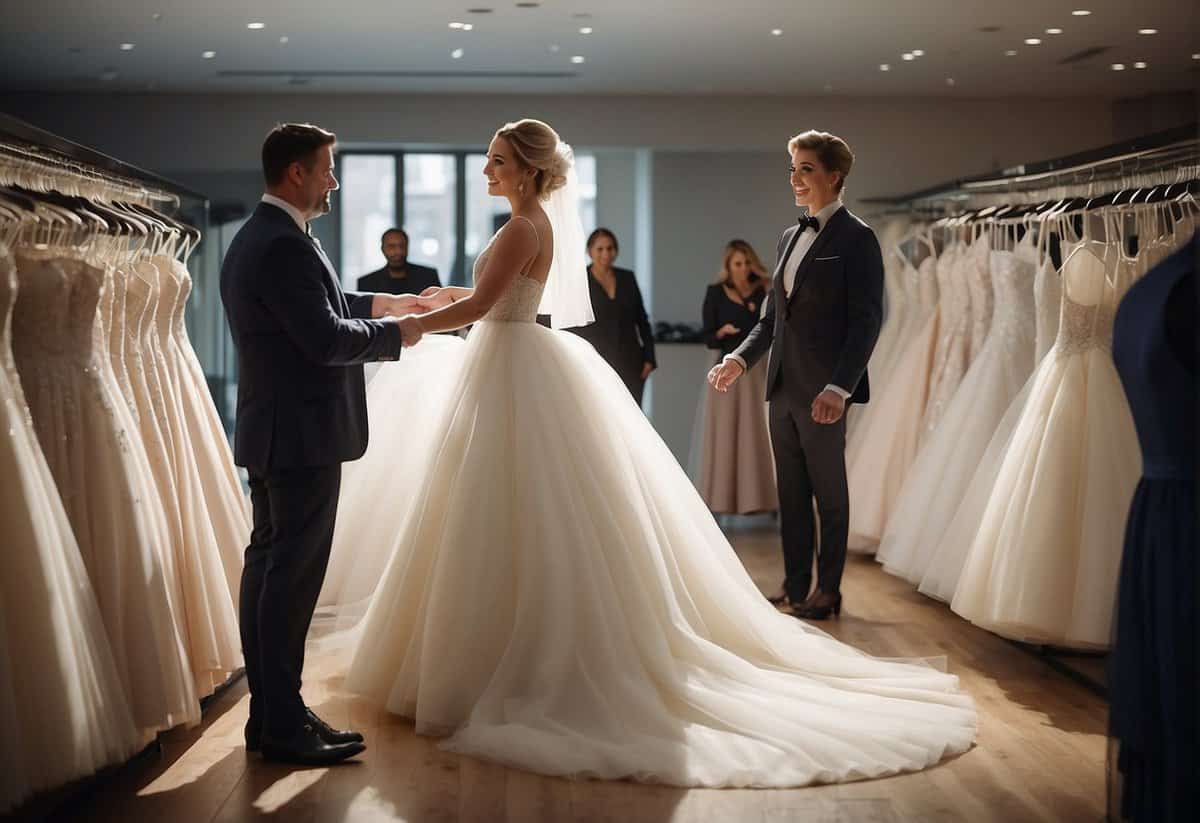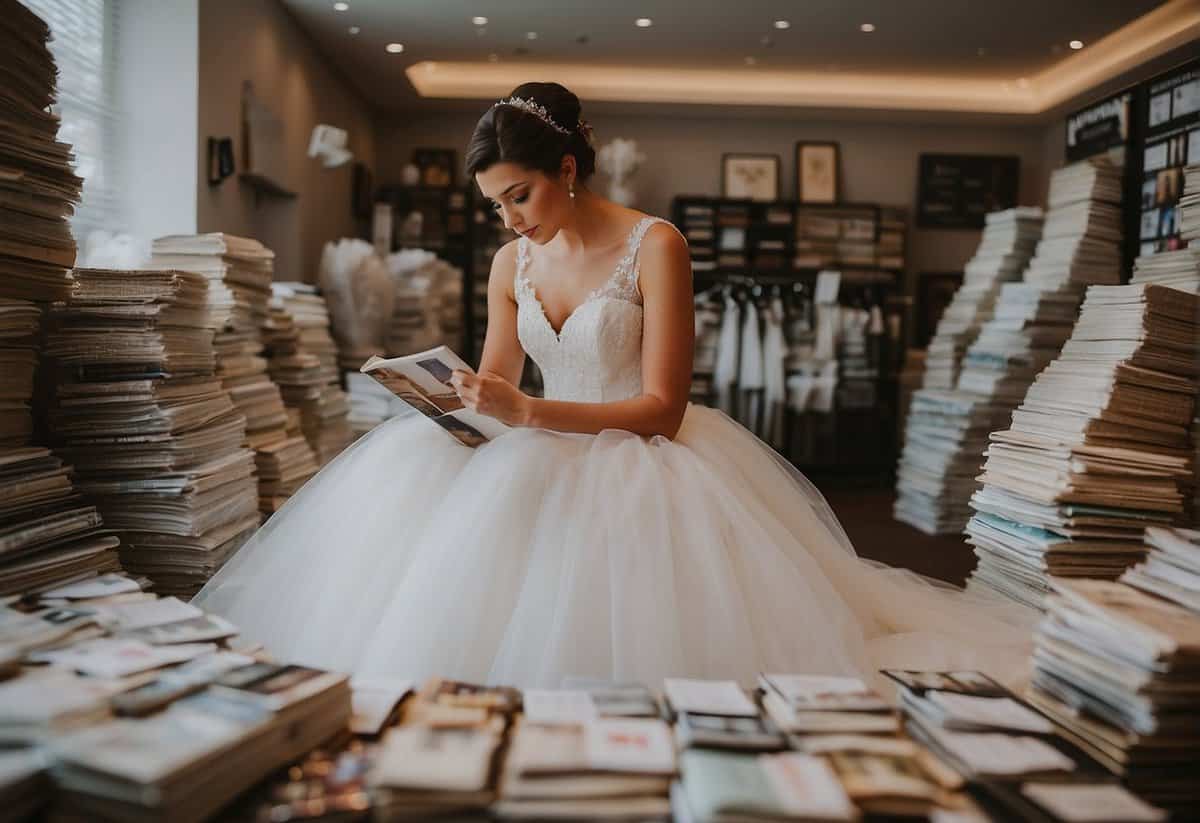Does the Bride Buy Her Wedding Dress? Understanding Bridal Attire Expenses
Shopping for a wedding dress is one of the most exciting moments leading up to your big day. Traditionally, the bride does purchase her own wedding dress, and this process is often filled with trying on various styles to find the one that feels just right. The goal is to find a gown that not only aligns with your personal style and venue but also makes you feel confident and radiant. However, the cost and tradition can vary depending on cultural norms and family expectations.

When preparing to shop for your wedding dress, timing is key. Most wedding experts suggest starting the search for your wedding dress eight to ten months before your wedding. This allows ample time for browsing different designs, trying on dresses, placing the order, and completing necessary alterations. Remember, this is your moment to shine, so it’s important to feel comfortable and not rushed during the selection process.
Key Takeaways
- The bride typically purchases her own wedding dress.
- Start dress shopping eight to ten months before the wedding.
- Take your time finding the dress that makes you feel confident.
Preparing for Wedding Dress Shopping

Embarking on the journey to find your dream wedding dress is an exciting milestone. Having a clear plan can make the process enjoyable and stress-free, focusing on the timeframe, budget, and people who will support you in choosing that perfect gown.
Understanding the Wedding Dress Timeline
It’s crucial to start wedding dress shopping early; ideally, begin at least a year before your wedding date. This ensures ample time for browsing, fittings, and any alterations. Bridal gowns, particularly those made-to-order, can take up to six months from the date of purchase to be ready. Final fittings should be scheduled a few weeks before the big day.
Setting the Budget
Decide on your wedding dress budget before stepping into a bridal shop. Be mindful of the fact that accessories, alterations, and taxes can add to the overall cost. A clear budget will guide the shopping process and help the bridal salon recommend dresses that are realistically within your financial scope.
Choosing the Right Shopping Crew
Your shopping crew should ideally be a small group of trusted friends or family members whose opinions you value. This can include a best friend, a mother, or a sibling. Remember, the aim is to have a supportive crew that helps you feel at ease. Check with the bridal salon on their guest policy to ensure a seamless experience.
Research and Inspiration
Gather inspiration for your preferred style and design by looking through bridal magazines and online resources. Bring pictures or save them on your phone to show the bridal stylist. Be open to trying different styles, but keep in mind your comfort and what best suits your personality and body type.
Scheduling Appointments
Finally, arrange wedding dress appointments at various bridal salons. Weekends can be busy, so consider taking a day off during the week if possible for a more relaxed experience. Aim to book these appointments several weeks in advance, particularly if the designers you’re interested in are popular or require a longer lead time.
Finding the Perfect Dress

Embarking on the quest for the perfect wedding dress is a pivotal moment in your bridal journey, encompassing a variety of choices from the initial selection to the final alterations. Your experience will weave through a tapestry of bridal boutiques and designs, all tailored to fit the unique vision you have for your day.
Navigating Bridal Shop Selections
Begin your search at a bridal boutique that aligns with your style and budget. It’s wise to research different wedding dress styles beforehand to have an idea of what you might like. Keep in mind that popular boutiques may require appointments, so plan ahead to secure your spot.
Deciding on Dress Details
When trying on dresses, the fit and measurements are crucial for comfort and elegance. Consider different wedding dress necklines and how they complement your shape. It’s not just about the dress’s look, but how it feels on you.
Accessories and Adornments
Choosing the right accessories—like a delicate veil, the perfect pair of shoes, and sparkling jewelry—will complete your bridal look. Selecting these should be harmonious with your gown’s style. Sometimes, less is more; so, let the dress guide your choices.
The Role of Alterations
Even the perfect dress may require some tweaking, which is where alterations come in. A skilled seamstress will ensure your dress fits like a glove. Remember to schedule fittings within your wedding dress timeline to allow for adjustments.
Finalizing the Dress Purchase
After finding your dream gown, you’ll typically place a deposit to initiate the process. Ensure you’re comfortable with the boutique’s policies and have a clear understanding of the total cost, including alterations. As the day approaches, final fittings will confirm that your dress is exactly as you envisioned.
Consider this journey a cherished chapter in your wedding story, with each selection contributing to the moment you walk down the aisle. With patience and these guidelines, you’ll find a dress that’s both breathtakingly beautiful and uniquely yours.
Frequently Asked Questions

When planning your wedding, understanding who typically pays for what can help you navigate the financial aspects of the event smoothly. In this section, we answer some common questions about wedding attire expenses.
Who is traditionally responsible for purchasing the bride’s wedding dress?
Traditionally, the bride’s family is responsible for purchasing the wedding dress, although this can vary depending on personal preferences and financial situations.
How far in advance should a bride buy her wedding dress?
A bride should ideally buy her wedding dress eight to ten months before her wedding day to ensure enough time for dress ordering and alterations.
What expenses are typically covered by the groom in a wedding?
Typically, the groom covers expenses such as the marriage license, officiant fees, the bride’s bouquet, his own attire, honeymoon, and the wedding bands.
How much do bride’s parents usually contribute to the wedding costs?
The bride’s parents traditionally cover a substantial part of the wedding costs, but the exact amount can vary greatly among different families and cultures.
What are the customary financial responsibilities for bridesmaids’ attire?
Usually, bridesmaids are expected to pay for their own dresses and accessories, although the bride may choose to contribute as a gesture of appreciation.
How do couples generally decide who buys the wedding bands?
Couples generally decide who buys the wedding bands based on their personal financial situation and preferences, but it is common for each partner to purchase the other’s band.

